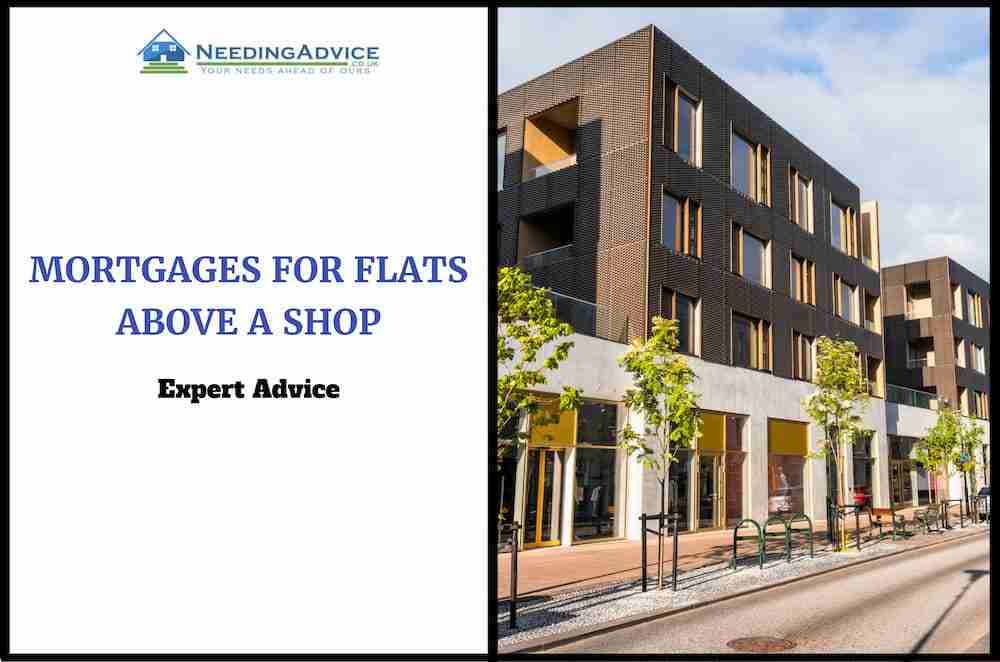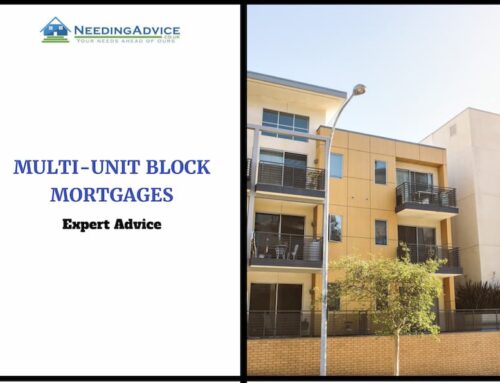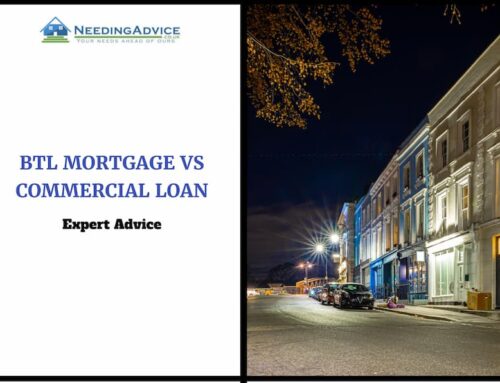For the last decade, we have received many queries regarding mortgages for flats above a shop. With this article, we will try to update our readers with all the necessary details for this type of mortgage on commercial premises. Getting a mortgage on a property or flat above a shop or commercial premises is possible but complicated. A flat above commercial premises could be a good investment opportunity for many people. These commercial properties could be pubs, restaurants, takeaways etc. There are many different categories of commercial property as assigned by the council. Fortunately, there are some mortgage lenders who can offer you such mortgages under the right circumstances. As a team of experienced mortgage brokers working in the UK for the past 20+ years, we can help you to get the mortgage on the best terms from the lender.
The article is updated as of Sept 8th 2025
What are the challenges people face in getting a mortgage for an apartment above a shop?
When you’re looking to get a mortgage for an apartment above a shop, there are several hurdles you might come across. From my experience as a mortgage broker in the UK, here’s what you need to know:
- Finding a Willing Lender: Your first challenge is that not every bank or building society is eager to lend money for properties above commercial premises. They often see these as higher risk, so your choice of lenders might be more limited than you’d expect.
- Concerns Over Property Value: Lenders get jittery about the future saleability of these properties. The worry is that the business downstairs—be it a noisy bar or a smelly takeaway—could turn off future buyers or renters, impacting the property’s value.
- The Rental Market: If you’re buying to let, lenders will take a hard look at how easy it will be to rent the place out. Some tenants love living in the heart of things, but others might be put off by the idea of living above a shop.
- Insurance Costs: Did you know that insuring a flat above a shop can cost more? This is due to the perceived extra risks, such as fire hazards from the business below. This can play into how lenders assess whether you can afford the mortgage.
- Dealing with Leaseholds: A lot of these properties are sold as leaseholds, and sometimes, the lease conditions can throw a spanner in the works. Restrictions on how you can use the property might not sit well with your lender.
- Meeting Regulations: Especially if the shop below is something like a restaurant, your flat will need to meet certain safety and regulatory standards. Lenders will want to see that these boxes are ticked.
- Access Issues: Ideally, your flat should have its own entrance, separate from the business below. Shared access can raise security concerns for lenders.
Getting through these challenges might sound complicated, but it’s all part of the journey towards owning a unique property like this. With the right advice and a bit of persistence, finding a mortgage for a flat above a shop is definitely achievable.
What documents do I need to apply for a mortgage for a flat above a shop?
The following documents may be required for shop mortgages in the UK:
1. Income: You must show proof of your monthly income from your current job. It can be either salary slips or bank statementsA record of a borrower's financial transactions often requir.... In case you are self-employed, you must provide proof of your monthly net profit.
2. Proof Of Assets: You must also prove that you have enough cash to cover the amount you want to borrow. You can do this by providing copies of your latest tax returns. Also, if you have any other assets like cars, houses, land, shares, etc., they must be shown to the lender.
3. Credit Score: Your credit score plays a very important role while applying for a mortgage. The higher your credit score, the better chance you have of getting approved for a loan. However, even if your credit file score is low, you may still be able to get a mortgage, provided you meet certain requirements. You can check your credit file on our website.
4. Employment HistoryA record of a borrower's employment history, which may be us...: If you have been employed for at least two years, you can expect to receive a lower rate of interest than someone without work experience.
5. Rental History: Your landlord must give his consent for you to get a shop mortgage. He might ask for a security deposit, which he would return once you pay off the loan.
Continuing this process, the article details specific considerations for securing a mortgage for a flat above a shop, emphasizing the complexity due to the mixed residential and commercial use. It outlines the importance of understanding the particular challenges such as insurance costs, lease conditions, and meeting regulatory standards that are crucial for obtaining a suitable mortgage product from potential lenders. The piece concludes with insights into the document requirements, the significance of a strong credit history, and expert advice for navigating this complex process.
Can you get a mortgage on a flat above a shop?
Yes, it is possible to secure a mortgage on a flat above a commercial property in the UK, whether it’s for residential or buy-to-let purposes. However, several factors can influence this:
- Location and Safety: The property’s location and safety are crucial. While properties near busy roads can be considered less desirable due to noise and pollution, this isn’t a hard and fast rule and depends on various factors.
- Property Value and Rent: The property’s value and the rent it can generate are significant factors that lenders consider. A professional valuer can provide an accurate property valuation.
- Freehold vs Leasehold: Mortgages are available for both freehold and leasehold properties. However, the terms of the lease can affect the approval of the loan.
- Size of the Property: The property’s size can impact the income it generates and, thus, the ability to repay the loan. However, a larger property doesn’t necessarily increase the overall cost of the mortgage, which depends primarily on the property value, interest rate, and loan term.
- Planning PermissionPermission granted by the local authority for a property to ... and Fire Regulations: The property must comply with planning permissions and fire regulations.
- Ownership and Mortgage Types: If you own the property, you can apply for a mortgage. If you don’t, other types of loans or mortgages may be more suitable than an equityThe difference between the value of the property and the amo... release mortgage, which is typically used to unlock the value of a property you already live in.
Why is it difficult to get a mortgage for a flat above a shop?
A mortgage application for a flat over a shop could be difficult to get approval for because mortgage lenders consider it a riskier investment when compared to regular residential properties. The most important reason is that property over a shop could create a nuisance, such as noise, smells, late-night shouting, etc, which could affect the resale value. It is a fact that these types of properties lose value faster as compared to other types, so lenders will always try to protect their investments by asking for larger deposit amounts
In order to avoid the hassle of applying for a mortgage on property above a shop, you may want to consider buying a normal residential property instead. This way, you will have more options available to you. You can sell the property at a later stage and use the money you earn from this sale to pay off your mortgage.
There are some disadvantages associated with getting a mortgage on a property over a shop. One disadvantage is that you will not be able to take out a mortgage for more than 75% of the market value of the property. Another disadvantage is that you will have to pay stamp dutyA tax paid by the buyer when purchasing a property. on the purchase price of the property.
The main advantage of getting a mortgage for a flat over a store is that you will have no problem selling the property at a later date. This means that you can save a lot of time and effort.
If you are struggling to get a mortgage on such flats, you can contact a market broker who can help you in getting a suitable mortgage deal.
What else could impact the mortgage provider’s lending decision?
Several factors can influence a mortgage provider’s lending decision, including the amount of rent received from the property, the landlord’s willingness to extend the lease, the type of tenancy agreement in place, and the number of years left on the current lease. Outstanding debts to the landlord, recent structural changes or property improvements, and the property’s size, location, and market value also play a role. Additionally, legal issues, credit history, previous mortgage applications, past loan defaultsMissed payments on credit accounts, which can affect a borro..., intended duration of stay, and the property type can all impact the lender’s decision.
Can you get a mortgage for a flat above a restaurant?
Getting a mortgage for a flat above a restaurant is similar to any other shop. Banks and building societies will do the same affordability check as others. Some mortgage lenders will resist giving you a mortgage for flats above drinking establishments, takeaway outlets, etc, because of the higher risk of fights or other crimes. You can contact a specialist mortgage broker for financial advice; otherwise, it would be a difficult task for you.
Next Steps
Getting a property over shops could be difficult, but with the help of a market broker or specialist mortgage broker, it is possible to find suitable mortgage options. It is important to consider the potential risks and disadvantages associated with buying a flat above a shop, such as noise and potential depreciation in value. Assessing factors like rental income, lease agreements, property size and location, and your own financial history will also play a role in the mortgage provider’s lending decision.
FAQ: Mortgages for Flats Above Shops
Q: Can I get a mortgage for a flat above a shop?
A: Yes, you can. However, you might need to go through a specialist lender who’s up for handling this type of property. Mainstream lenders can be a bit shy about these because they see them as a bit more risky.
Q: What makes flats above shops different when applying for a mortgage?
A: These properties mix residential and commercial spaces, which not every mortgage lender is comfortable with. The business type below (like a noisy bar or a late-night takeaway) can affect your mortgage application. Specialist mortgage lenders are more experienced with these and can offer you the mortgage options that suit your personal circumstances.
Q: Will I need a larger deposit for a mortgage on a flat above a shop?
A: Quite possibly, yes. Because some lenders view these types of flats as a bit riskier, they might ask for a bigger deposit to cover the mortgage deal. It’s a way of them making sure they’re not left out of pocket if things go south.
Q: Can I get a buy-to-let mortgage for these types of properties?
A: Definitely. If you’re looking to rent out the flat, a buy-to-let mortgage is what you’re after. Bear in mind, the potential rental income from the flat will be scrutinised as part of your mortgage application to ensure the mortgage repayments can be covered.
Q: What about the noise and the unsociable hours from the business below?
A: This is something lenders will consider, especially with flats above restaurants or pubs. The potential for late-night noise can affect the property’s appeal to future renters or buyers, and this is reflected in how a mortgage lender assesses your application.
Q: Are there specialist brokers for this type of mortgage?
A: Yes, and it’s often a good shout to work with one. A specialist mortgage broker knows the ins and outs of securing mortgages for these unique types of property. They’ll go the extra mile to find you a deal that matches your needs, even if your credit report isn’t perfect or if you’re a first-time buyer.
Q: How does my credit score affect my mortgage application?
A: Your credit history is a big deal to lenders. It gives them a glimpse into how reliably you’ve managed debts in the past. A squeaky-clean credit report is ideal, but if you’ve got a bit of bad credit, don’t lose hope. Specialist finance options might still be available, especially with expert advice from a specialist broker.
Q: What should I consider before applying for a semi-commercial mortgage?
A: Think about the type of business operating below the flat. Is it a quiet dry cleaner or a bustling food shop? Also, consider the insurance premium, as properties with commercial units can cost more to insure. A specialist mortgage broker can give you the lowdown on what to expect throughout the mortgage process, ensuring you apply with complete confidence.
Q: Any tips for first-time buyers looking at flats above shops?
A: Start with getting some professional mortgage advice. Every buyer’s situation is unique, so getting a bespoke service is key. Also, using a mortgage calculator can give you a rough idea of your monthly repayments and help you budget better. Remember, there’s a suitable product out there for nearly everyone; it’s just about finding the right match for your circumstances and the property type.
Q: What’s the chance of approval for a mortgage on this type of property?
A: It varies. Your annual income, credit score, and the specific details of the property all play a part. Working with a specialist mortgage broker boosts your chance of approval because they know which lenders are more likely to offer a mortgage deal for these unique situations.
Remember, the world of mortgages can be a maze, but with the right guidance and a bit of know-how, navigating it becomes a whole lot easier. Whether you’re eyeing a leasehold flat above a retail shop or considering a commercial mortgage for a property with a commercial unit on the ground floor, there’s plenty of expertise available to help you make informed decisions.






